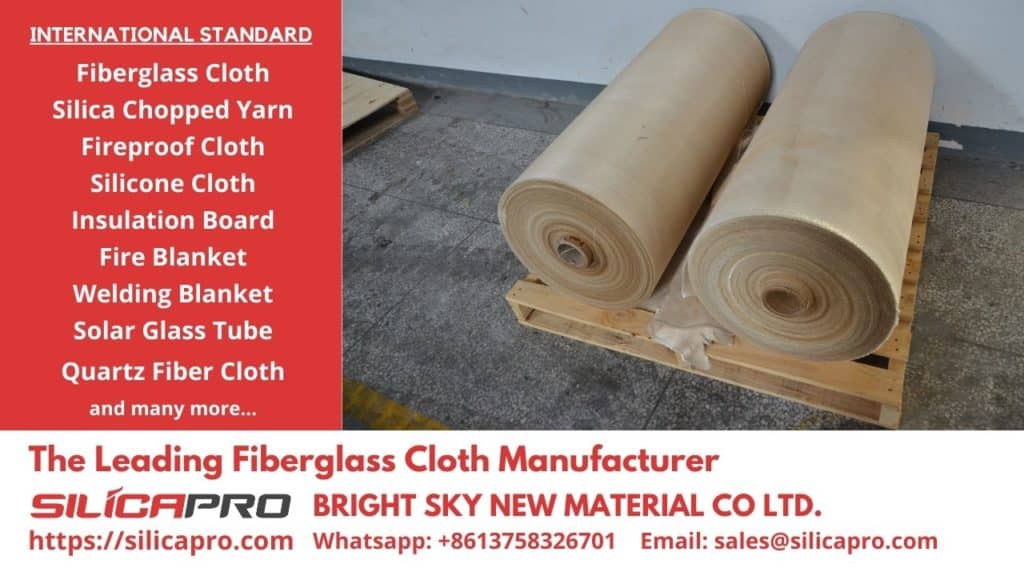
As we know, fiberglass has a broad spectrum in various industries worldwide. Fiberglass in the chemical industry is very useful in making platforms or grids of its anti-skid and chemical-resistant safety features. Fiberglass sand surfaces in chemical plants are embedded together with different resin compounds according to their designation.
Contents
Minimize Hazards in the Workplace
The safety and security of workers in their work area is the first line that factory owners must pay attention to. Sometimes the smallest misses can be catastrophic, like a loose screw in a platform joint or a leaky spot in the connecting pipe between the chemical liquid tubes. Fiberglass in the chemical industry will be a safety bridge for workers and the durability of your operational machines.
The ladder that is the access link to the engine uses a fiberglass composite that is lightweight, strong against shock, resistant to corrosion, and resistant to chemicals. Composites also easily conduct heat or cold. In addition to chemical plants, buildings also use this fiberglass composite for extra protection of doors, windows, and panels from inclement weather. The side-mounted handrails, wall-mounted handrails, and other factory equipment also use fiberglass.
History of the Emergence of Fiberglass
The emergence of very fine glass fibers has been around since the 1800s. Fiberglass is emerging as a reinforcing agent for various polymer products. People are familiar with glass fibers reinforcing these polymers with FRP or fiberglass. FRP is fiber-reinforced plastic, and it is a composite consisting of fiber and resin (matrix). Many experiments emerged after many fine machine tools were born to be able to mass produce fiberglass.
A father of the glass industry born in Chelsea, Massachusetts, USA, Edward Drummond Libbey exhibited a work of art at the Columbia World Exhibition in the form of a dress that was a combination of glass fiber with a silk fiber texture in 1893. Libbey used the invention of Michael Joseph Owens, who invented the machine to automate the production of glass bottles.
However, the fiberglass we know today managed to find Russel Games Slayter, and he continued to develop it since early 1933 when he found a new method of producing glass wool. Games is a U.S. engineer and productive inventor. He is best known for developing fiberglass so that it can be used as a material for insulation. Fiberglass in the chemical industry continues to exist until now even the innovation has surpassed what today’s humans can think of.
Fiberglass Grating
You can find fiberglass in the chemical industry in the manufacture of gratings for platforms, walkways, and industrial floors. Fiberglass grating is important to apply because it is non-corrosive, it is the best conductive, and it is durable, so it is safer for high-risk environments such as in chemical plants.
Factories with chemical loads, such as textile factories or paint manufacturers, must have strict protection to be safe from being exposed to the elements or coming into contact with hazardous chemicals that have corrosive properties. Some places with chemical load and need FRP grating are listed below:
- Work areas with combustible materials, such as chemical plants, are in dire need of FRP grids. This material is safe and nonflammable, and when the surroundings have been scorched, this material still survives with its hardness.
- The risk of corrosive substances leaking or spilling is always in the manufacture of plastics or food preservatives. If the transport path, container surface, and platform do not have non-corrosive nature, then you will gain a big loss. FRP grating protectors are friendly to the chemical elements in the factory.
- Construction areas where transportation and storage lines are continuously rolling. Fiberglass grating material on bridges, bridges handrails, and distribution platforms must be flexible way and light.
- Fiberglass is the best protection for any electrical installation in areas with a lot of chemicals. Fiberglass does not have conductive properties, so if at any time there is a danger of electric shock to fire, and this FRP grating will protect all existing materials. Losses can be minimized.
- The oil rig industry that uses ships and other heavy equipment is in dire need of FRP grids. This area is subject to frequent thunderstorms, strong winds, extreme temperatures, and conditions where ships are submerged in water. Fiberglass makes ships lighter so they can avoid storms and save fuel for long trips every day.
Where to Get the Best Fiberglass

Silicapro is focused on the use of fiberglass in the chemical industry. All protection using fiberglass requires the best quality that comes from a superior company. For this reason, we have carried out various innovations and improved the quality of our products to keep up with technological developments in multiple industries. You can contact us now to get any kind of anti-slip and safety fiberglass to protect the chemical environment.
